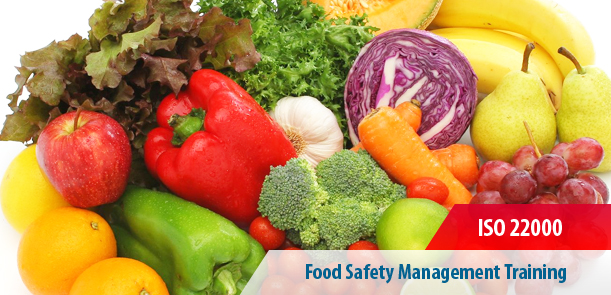Food safety standards in Australia are pretty tough but, even so, an estimated 4.1 million people get food poisoning in Australia every year. At the very least, this can be very unpleasant and debilitating, but it can also lead to severe illness and death.
There are obligations on Australian food businesses to produce and sell food that is safe and suitable to eat. Consequently, the food safety standards cover every aspect of the process, from initial handling to the gourmet delights served up in top restaurants.
These standards especially focus on health and hygiene obligations for food handlers, to reduce the risk of food-borne illness.
Best Practice
It is in businesses’ best interest to implement the strictest food safety management systems – let’s face it, nothing affects a business’s reputation more than a case of food poisoning!
With a growing demand for better food safety management systems, comes an equally growing demand for FSSC 22000 lead auditor training and ISO 22000 lead auditor training. For it is the auditor’s job to ensure these systems are running as they should, and that the organisation concerned is meeting its obligations.
To clarify, the ISO 22000 and FSSC 22000 systems do differ slightly. ISO 22000 is a more generic Standard and system, covering any organisations within the industry, from farms to food packaging. FSSC 22000 certification, however, applies solely to food makers.
Global Recognition
FSSC 22000 certification is recognised by the World Food Safety Initiative, GFSI, and combine ISO 22000:2005 system requirements, with PAS 220:2008. Having GFSI recognised certification is important for organisations that sell to major retailers.
Certification applies to an organisation’s processes, products and services, and the business must be able to demonstrate its ability to identify and eradicate any food safety risks. Certification brings many benefits to an organisation, from increased customer satisfaction and enhanced reputation, to the ability to market the product around the world.
With ISO 22000 Lead Auditor training, an individual is equipped to ‘audit’ an organisation’s food safety system against the criteria laid out in the Standard. Training should be comprehensive, giving the individual a complete understanding of how food safety management systems work, and the techniques used to assess and manage risks.
Interpreting the Standard
But this is no simple, checklist task! Every situation is different, and the food safety auditor must be able to interpret the Standard, the law and the actions being undertaken by a business. He or she must not only check the current effectiveness of the organisation’s food safety management system, but also its capability to maintain and, preferably, further improve its system.
Then there is also the organisation’s emergency preparedness to consider. If something goes wrong, does the business have a plan in place, and how quickly can they respond. A good recent example would be the voluntary recall on Tripod Farmers’ pre-packed salad mixes in February 2016.
The company was not obligated to announce the recall at that time, but chose to, after Victoria’s Department of Health reported that there had been 28 salmonella cases since the start of the year, and the lettuce was the common source.
Avoid Bad Press
The long established, family-run business acted quickly, and continued to work with health authorities.
Another well known example was the case of Chipotle Mexican Grill in California. The organisation was struck by one food safety disaster after another, with the company’s stock price being dealt a major blow.
This example, particularly, illustrates why food industry businesses need a current and effective food safety management system in place, with the ability to not only hugely reduce risks and threats, but also to respond immediately if trouble strikes.
Exciting Career Choice
Easy to see, then, why choosing FSSC 22000 or ISO 22000 Lead Auditor training can deliver an exciting career, with new challenges and opportunities every day. If you feel this is the career for you, your first move should be to contact a proven training provider, such as SC Training Centre in Brisbane.
Consultants will explain what you need to qualify for the course, and what you can hope to get out of it. As a rough guide, you should already have some experience in the food industry and, preferably, knowledge of management systems.
An understanding of food safety legislation and Codes of Practice would be a major advantage.
Training Packages
Training runs over 3 or 5 days depending on previous qualifications, and comprehensively covers everything you need to know, from the audit process itself, to communication skills, Standards and Codes, food hazards and the legal and ethical aspects of auditing.
Participants are assessed throughout the course – which includes a role play external audit – and through a written examination on the final day. Students who pass and are deemed ‘competent’ will receive a Certificate of Attainment and automatically qualify as a Provisional Auditor with Exemplar Global.
From then on, the opportunities for study, growth and travel are tremendous!
